QUICK SEARCH:
Breede-Gourits Catchment Management Agency, Cape Nature, Cites, City of Cape Town,Department of Environmental Affairs, Department of Environmental Affairs and Development Planning,Department of Economic Development, Environmental Affiars and Tourism,Department of Environment and Nature Conservation,Department of Economic, Small Business Development, Tourism and Environmental Affiars, Department of Agriculture, Forestry and Fisheries, Department of Water Affairs, Eastern Cape Parks and Tourism Agency, Ezemvelo KZN Wildlife, Gauteng Department of Agriculture and Rural Development, Limpopo Economic Development, Environment and Tourism, Mpumalanga Tourism and Parks, Rural, Environment and Agricultural Development South African National Biodiversity Institute and South African National Parks.
or
You can scroll down and read a bit about each organisation. The list runs in alphabetical order.
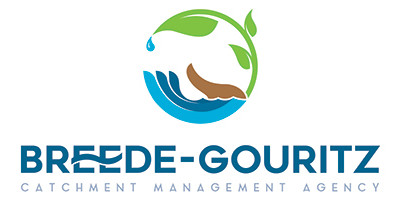
Breede-Gouritz Catchment Management Authority
The vision of the Breede-Overberg CMA (BOCMA) was developed around the question of how the BOCMA can make a positive contribution and engender meaningful change within a broader social context. The main elements of the vision are inclusion and participation (of all stakeholders), mediation (between competing environmental and human priorities), ensuring availability of good quality water and a responsibility to assist in eradicating poverty. For more information click here.

Cape Nature
CapeNature is a public institution with the statutory responsibility for biodiversity conservation in the Western Cape. It is governed by the Western Cape Nature Conservation Board Act 15 of 1998 and mandated to: promote and ensure nature conservation; render services and provide facilities for research and training; and generate income.CapeNature is driven by the vision to establish a successful 'Conservation Economy' - embraced by all citizens of the Western Cape and to transform biodiversity conservation into a key component of local economic development in the province. Our own definition of a conservation economy is an economy in which key principles and practices of biodiversity conservation have been fully integrated into all forms and levels of economic activity. We achieve this objective through various programmes and projects. For more information click here.

Convention on International Trade in Endangered Species
CITES (the Convention on International Trade in Endangered Species of Wild Fauna and Flora) is an international agreement between governments. Its aim is to ensure that international trade in specimens of wild animals and plants does not threaten their survival. Because the trade in wild animals and plants crosses borders between countries, the effort to regulate it requires international cooperation to safeguard certain species from over-exploitation. CITES was conceived in the spirit of such cooperation. Today, it accords varying degrees of protection to more than 35,000 species of animals and plants, whether they are traded as live specimens, fur coats or dried herbs. For more information click here.

City of Cape Town
The City of Cape Town is committed to sustainable development, which means building our city while taking care of our environment and its incredible biodiversity. We aim to maintain this delicate balance through our policies and laws by setting up positive partnerships and by creating educational projects that highlight how important our environment is – and how we can all protect it.
For more info click here

Department of Environment, Forestry and Fisheries
The Department of Environment, Forestry and Fisheries is mandated to ensure the protection of the environment and conservation of natural resources, balanced with sustainable development and the equitable distribution of the benefits derived from natural resources. In its quest for better use and management of the natural environment, the Department of Environmental Affairs is guided by its constitutional mandate, as contained in section 24 of the Constitution. The Department of Environmental Affairs fulfils its mandate through formulating, coordinating and monitoring the implementation of national environmental policies, programmes and legislation.For more information click here.

Department of Environmental Affairs and Development Planning
As a department we undertake to preserve our environment for future generations by preventing environmental harm. This is achieved by making informed decisions (based on South African environmental legislation), and understanding how other legislation impacts these decisions to enabling a Resilient, Sustainable, Quality and Inclusive Living Environment.
For more info click here
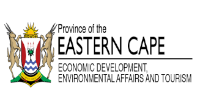
Department of Economic Development, Environmental Affiars and Tourism
The Department of Economic Development and Environmental Affairs and Tourism (DEDEAT) form part of the Eastern Cape Provincial Government and is mandated to spearhead growth and development of provincial economy and is committed to improving the lives of all its citizens. The policy priorities are derived from the Provincial Growth and Development Plan (PGDP), Provincial Industrial Strategy, and other high impact policy and linkages to initiatives such as Accelerated Skills Growth Initiative of South Africa – Eastern Cape and Provincial Job Summit Resolutions. These policy priorities serve as the key drivers in transforming the province’s socio-economic agenda.
For more info click here

Department of Environment and Nature Conservation
he mission of the Northern Cape Department of Environment and Nature Conservation is to conserve and protect the natural environment for the benefit, enjoyment and welfare of present and future generations by integrating sustainable utilisation with socio-economic development. The Department's strategic-orientated goals are: environmental quality and biodiversity management; socio-economic benefits and employment creation; cooperative governance and administration; environmental education; research; and compliance and enforcement.
For more info click here

Department of Economic, Small Business Development, Tourism and Environmental Affiars
To be a leading and developmental institution, that drives economic transformation, environmental sustainability, system change and adaptation to the ever-changing dynamics for the benefit of the Free State
For more info click here

Department of Agriculture
The Department of Agriculture, Forestry and Fisheries strives towards a united and prosperous agricultural sector, with the aim of supporting sustainable agricultural development. The departmental values are underpinned by the ethos of "Vuk'uzenzele". The direct interpretation of self-reliance is built upon to capture the spirit of South Africans as people who want to help build a better life for all. For more information click here.
Agriculture - LandCare
Land degradation is costing millions of Rand each year in lost production alone. If we include treatment of degraded land and nutrient loss, research and other costs related to pollution and the silting of our waterways, the costs add up to several billion Rand a year. This is a cost that our whole community has to bear. If nothing is done, we will almost certainly face higher food costs, loss of income and loss of biological diversity. But it's not all that bad. People are realising the problems and exploring solutions. Now there is a LandCare programme with dedicated people who want to change things around.

Department of Water Affairs
The Department of Water Affairs is the custodian of South Africa's water resources. It is primarily responsible for the formulation and implementation of policy governing this sector. It also has override responsibility for water services provided by local government. While striving to ensure that all South Africans gain access to clean water and safe sanitation, the water sector also promotes effective and efficient water resources management to ensure sustainable economic and social development. For more information click here.

Eastern Cape Parks and Tourism Agency
At Eastern Cape Parks and Tourism Agency, we look at conservation from a strategic point of you, with a firm belief in measurable results and the sustainable outcome of conserving biodiversity and biomes. In order to ensure that we extend our conservation footprint, we have created strategic management plans for each of our parks with outcome-based deliverables . The Strategic Management Plans (SMP) for the nature reserves place an unyielding focus on conservation. An extract from the SMPs of one of our various reserves illustrate the main conservation focus for each reserve. Each reserve within the Eastern Cape Parks and Tourism Agency boasts its own unique visitor experience with a wealth of flora and fauna and accommodation to suit your adventure style. Our inland game reserves are alive with an energised array of animal and plant habitats, while our coastal waters are teeming with life. For more information click here.
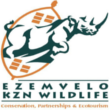
Ezemvelo KZN Wildlife
Ezemvelo KZN Wildlife is the provincial agency mandated to carry out biodiversity conservation and associated activities in the provinceof KwaZulu-Natalin the Republic of South Africa. The primary focus of the organisation is biodiversity conservation - the management of 99 protected areas and two World Heritage Sites which are the uKhahlamba-DrakensbergParkWorld Heritage Site and the Isimangaliso Wetland Park World Heritage Site. The organization also applies provincial nature conservation legislation and its associated regulations. A secondary but nevertheless vital aspect, is the management the largest eco-tourism operation in South Africa. The Ezemvelo KZN Wildlife administration model has been shown to work well whereby the eco-tourism operations provide financial support for conservation operations. These two key elements are backed by the Support Services Division which provides administrative support which includes audit, financial management and IT, amongst others. For more information click here.

Gauteng Department of Agriculture and Rural Development
The Department of Agriculture and Rural Development seeks to economically transform the agricultural sector, ensure sustainable environmental management for healthy living, food security and to develop rural and urban communities in Gauteng. The Department’s mission is to radically modernise and transform agriculture, environment and rural development by promoting environmental protection and management; expanding access to agricultural opportunities; maximising food security; up-scaling rural development; promoting the One Health System; and supporting sustainable livelihoods and communities.”
For more information click here
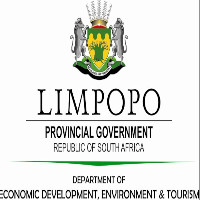
Limpopo Economic Development, Environment and Tourism
The Department of Economic Development, Environment and Tourism has a strategic mandate to help promote economic development and growth in the province. This implies that the Department is playing a leadership role in the efforts aimed at creating work and fighting poverty from food security to real economic growth. For this to happen the Department has crafted a Strategic and Annual Performance Plan that has specific and results oriented economic interventions that are also in line with its overall organizational vision and mission. The Limpopo Department of Economic Development, Environment and Tourism remains at the centre of providing leadership in economic development, investment promotion, ensuring an equitable business environment as well as promotion of tourism and sustainable use of environment.
For more info click here
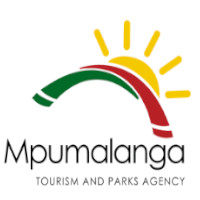
Mpumalanga Tourism and Parks
Mpumalanga Tourism and Parks Agency understands the vital importance of having a solid foundation and continuing flow of information on biodiversity in the province, and play a fundamental role in decisions relating to sustainable development and conservation in the province. Our province boasts a high level of biological diversity, with three recognised centres of endemism in the province (Barberton, Sekhukhuneland and Wolkberg) and one proposed centre of endemism (Lydenburg). The level of protection of these centres is, however, very low and conservation effortsare in place to address this. Despite this though, many areas of the province are still in pristine condition.
For more info click here
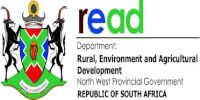
Rural, Environment and Agricultural Development
Working together with our partners to provide sustainable Agricultural, Environmental Management and comprehensive integrated Rural Development.
For more info click here

South African National Biodiversity Institute
The South African National Biodiversity Institute (SANBI) leads and coordinates research, and monitors and reports on the state of biodiversity in South Africa. The institute provides knowledge and information, gives planning and policy advice and pilots best-practice management models in partnership with stakeholders. SANBI engages in ecosystem restoration and rehabilitation, leads the human capital development strategy of the sector and manages the National Botanical Gardens as 'windows' to South Africa's biodiversity for enjoyment and education. For more information click here.
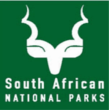
South African National Parks
South African National Parks, (SANParks), manages a system of parks which represents the indigenous fauna, flora, landscapes and associated cultural heritage of the country. Of all the national parks, most have overnight tourist facilities, with an unrivalled variety of accommodation in arid, coastal, mountain and bushveld habitats. For more information click here.
 If you want your company or business on this site, please email me - its totally free!
If you want your company or business on this site, please email me - its totally free!